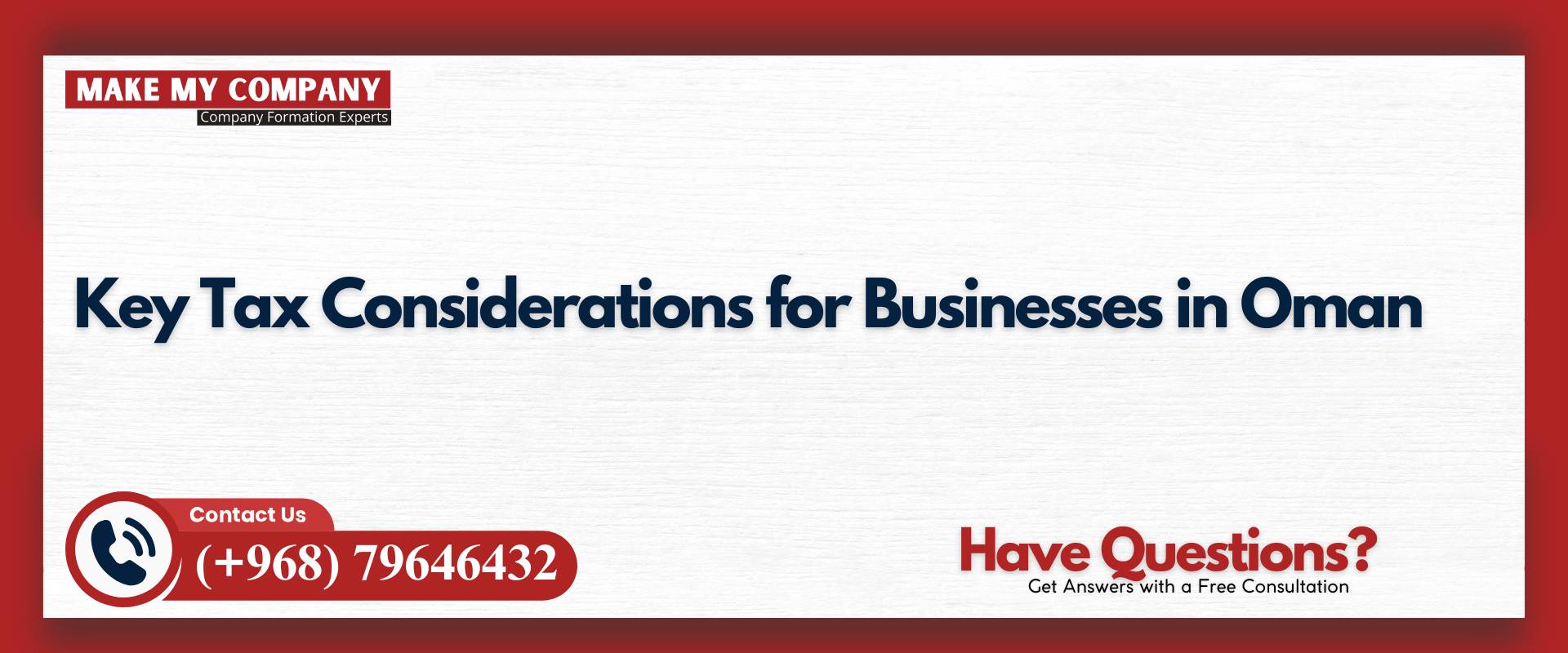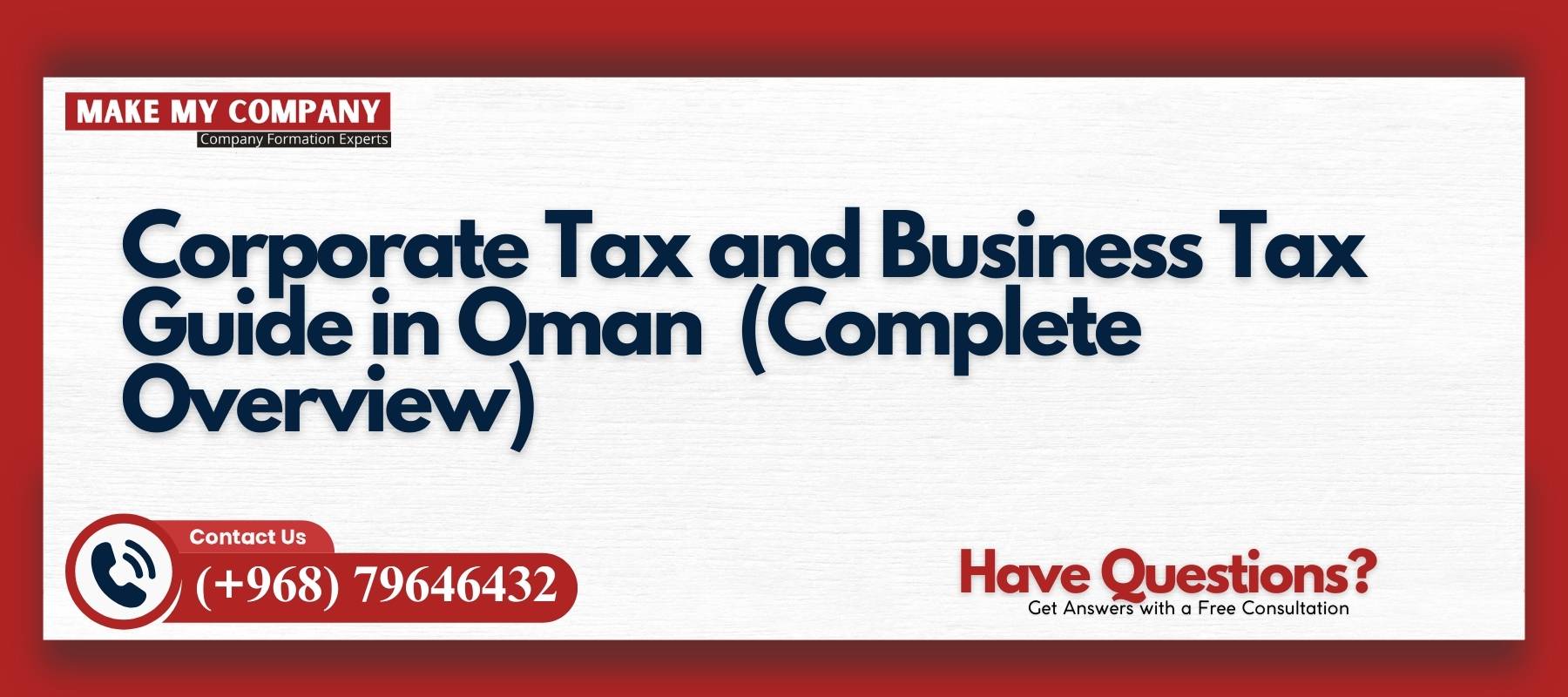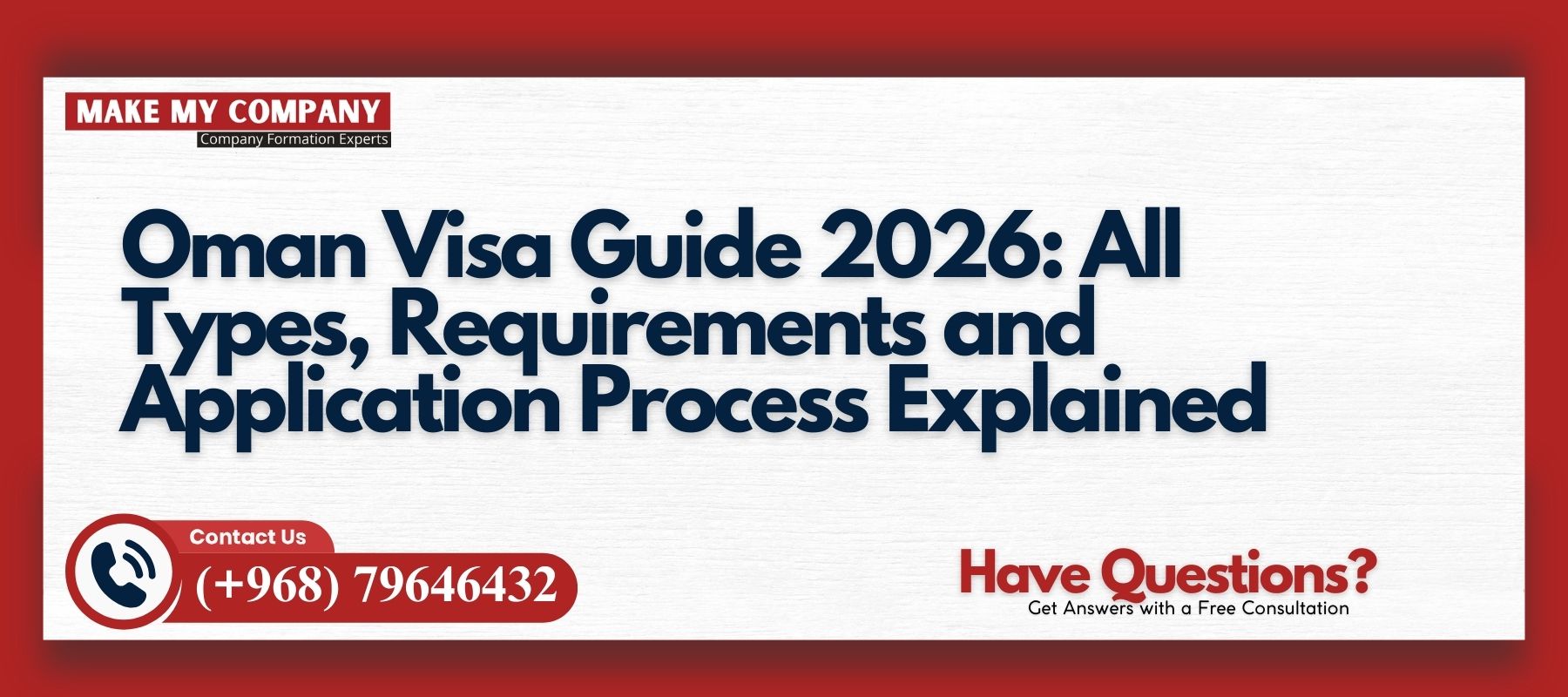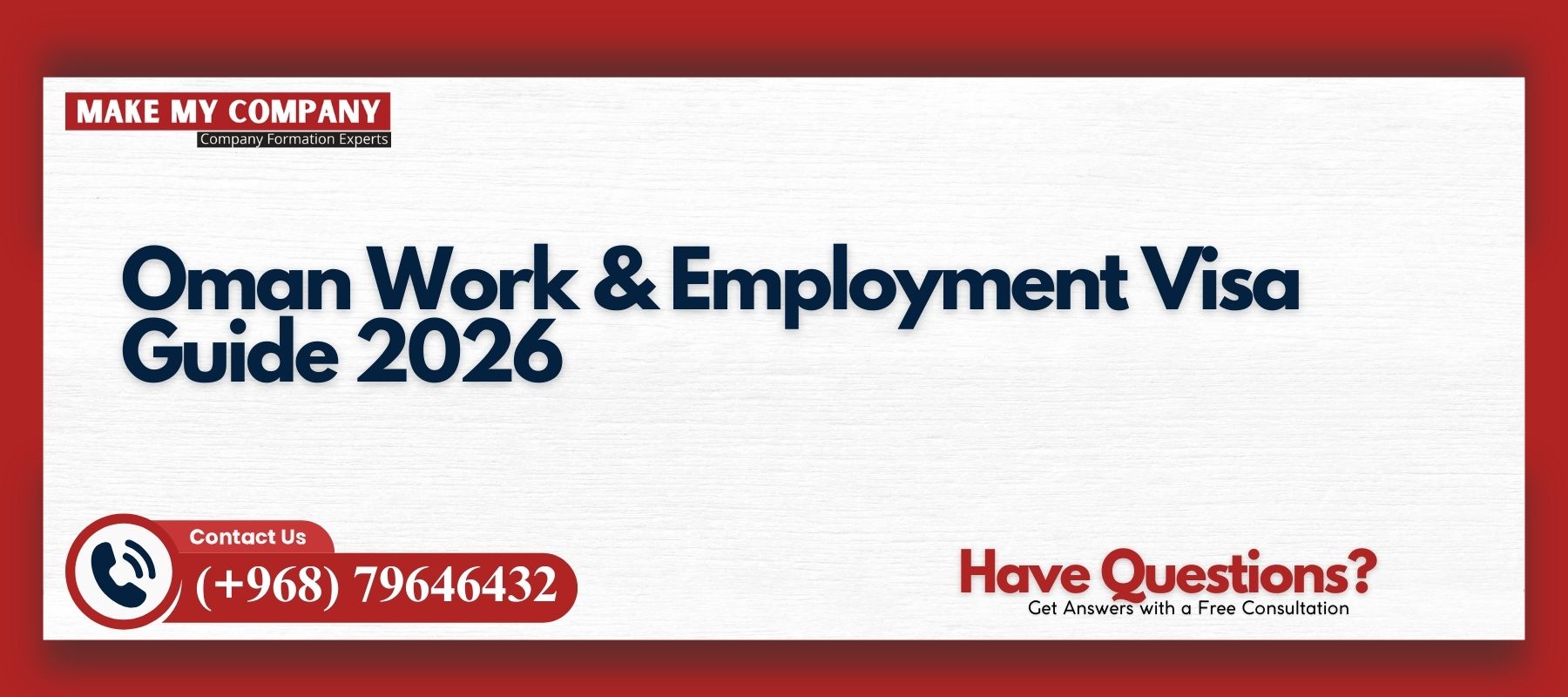Oman has emerged as a prime destination for entrepreneurs and businesses due to its stable and rapidly growing economy, which has consistently diversified beyond oil. Situated at the crossroads of international trade routes, Oman offers unparalleled access to major markets in the Gulf, Asia, and Africa. Its government has implemented policies that actively support foreign investment, such as tax incentives, free trade agreements, and streamlined business processes. The establishment of special economic zones and free zones further enhances its appeal, allowing businesses to benefit from long-term tax exemptions and operational flexibility. However, understanding the tax for businesses in Oman is a crucial step for anyone planning to succeed in this region, as compliance with local regulations can significantly impact profitability and growth opportunities.
Introduction to Oman’s Tax System
Oman’s tax system is straightforward and designed to foster economic growth while ensuring compliance. For instance, the introduction of a flat 5% VAT rate has not only boosted government revenue but also streamlined tax collection processes. Additionally, tax exemptions for key sectors like agriculture and healthcare encourage investments in areas that drive sustainable development. Combined with double taxation agreements (DTAs) that enhance cross-border trade opportunities, Oman’s tax policies are strategically aligned to attract foreign investments and nurture local entrepreneurship. Governed by the Tax Authority, the framework includes corporate tax, value-added tax (VAT), and withholding tax. Businesses must stay informed about tax laws to avoid penalties and optimize operations.
Why Tax Planning is Essential
Proper tax planning ensures compliance and financial efficiency. It helps businesses:
- Minimize tax liabilities.
- Optimize operational costs.
- Avoid penalties for non-compliance.
- Enhance credibility with stakeholders.
- Ensure smooth expansion within and outside Oman.
Types of Taxes in Oman
Understanding the different types of taxes applicable in Oman is vital for businesses, as they directly impact profitability, operational decisions, and compliance strategies. Here are the main categories:
Corporate Tax
The corporate tax in Oman applies to both Omani and foreign businesses operating within the Sultanate. As of 2024, the corporate tax rate stands at 15% for most businesses, with a lower rate of 3% for small businesses that meet specific conditions. Additionally, certain businesses operating in specific industries may qualify for exemptions or reduced rates to stimulate growth in targeted sectors.
Exemptions: Certain sectors, such as agriculture, education, and healthcare, enjoy tax exemptions to promote development. Moreover, newly established businesses in these sectors can benefit from reduced compliance requirements during their initial years.
Taxable Income: Taxable income includes all revenue streams, except those explicitly exempted under Oman’s tax laws. Businesses are encouraged to maintain precise records to substantiate their income and expense claims.
Value-Added Tax (VAT)
Oman introduced VAT at a standard rate of 5% in April 2021. VAT applies to most goods and services, with some exemptions for essential items like healthcare and education. Businesses must register for VAT if their annual turnover exceeds the mandatory threshold of OMR 38,500. Voluntary registration is also available for businesses with a turnover exceeding OMR 19,250.
VAT Refunds: Certain categories of taxpayers, such as exporters and government-related entities, may qualify for VAT refunds, provided they adhere to specific documentation requirements.
Withholding Tax
Withholding tax applies to payments made to non-residents for services such as royalties, management fees, and technical services. The rate is generally 10%.
Expanded Scope: Recent amendments have extended withholding tax to include additional categories of payments, making it crucial for businesses to review their contracts with non-residents.
Tax Registration and Compliance
How to Register for Tax in Oman
Businesses must register with the Tax Authority to comply with Oman’s regulations. The process involves:
- Obtaining a Commercial Registration (CR) certificate.
- Submitting tax registration forms online.
- Providing necessary documentation, including a copy of the business license.
- Acquiring a Tax Identification Number (TIN), which is essential for all correspondence with the Tax Authority.
Timelines: Registration must be completed within 60 days of establishing a business or initiating taxable operations.
Filing Tax Returns
Businesses are required to file tax returns annually. Key steps include:
- Preparing audited financial statements.
- Submitting the return within six months of the end of the financial year.
- Paying any tax liabilities on time.
Quarterly Reporting: Some businesses may also be required to submit quarterly VAT returns, depending on their turnover.
Consequences of Non-Compliance
Failure to comply with tax regulations can result in:
- Financial penalties ranging from fines to interest on overdue amounts.
- Legal action by the Tax Authority.
- Suspension of business activities until compliance is restored.
Mitigation Measures: Businesses should consider engaging professional tax advisors to avoid compliance risks and ensure timely filings.
Tax Incentives for Businesses in Oman
Oman offers various tax incentives to attract foreign investment and support local businesses:
Free Zones
Businesses operating in free zones like Sohar, Salalah, and Duqm enjoy several benefits, including:
- Tax holidays of up to 30 years.
For example, a logistics company established in the Sohar Free Zone reported a 40% reduction in operational costs within its first five years, attributed largely to tax exemptions and streamlined customs processes. Such benefits enable businesses to reinvest savings into expansion and innovation, fostering long-term growth.
- Exemption from import and export duties.
- 100% foreign ownership.
- Simplified licensing procedures.
Eligibility Criteria: To benefit from free zone incentives, businesses must adhere to specific guidelines, such as employing a minimum percentage of local workers.
Sector-Specific Exemptions
Key sectors like tourism, mining, and renewable energy often receive tax exemptions to encourage growth. These exemptions aim to:
- Promote sustainable development.
- Diversify Oman’s economy.
- Attract cutting-edge technologies.
Key Considerations for International Businesses
Double Taxation Agreements (DTAs)
Oman has signed DTAs with several countries to prevent double taxation on income. These agreements facilitate smoother international business operations by:
- Reducing the overall tax burden for cross-border transactions.
- Providing clarity on the tax treatment of income streams like dividends, interest, and royalties.
Implementation: Businesses must present a Certificate of Residency to claim DTA benefits.
Transfer Pricing Regulations
Multinational corporations must comply with Oman’s transfer pricing rules, ensuring that transactions between related parties are conducted at arm’s length. Transfer pricing compliance involves:
- Preparing and maintaining documentation.
- Conducting periodic reviews of pricing policies.
- Submitting reports to the Tax Authority when requested.
Penalties: Non-compliance with transfer pricing rules can lead to significant fines and reputational risks.
Navigating Tax Audits
Tax audits in Oman are conducted to ensure compliance. Businesses should:
- Maintain accurate financial records.
- Be prepared to provide documentation for expenses and revenues.
- Respond promptly to inquiries from the Tax Authority.
Audit Preparation Tips:
- Conduct internal audits regularly.
- Engage professional accountants to review tax filings.
- Stay updated on changes to tax laws and regulations.
Planning Ahead: Upcoming Tax Changes
The Omani government is continually refining its tax policies to align with international standards. Businesses should keep an eye on potential changes, such as:
- Adjustments to VAT rates.
- Introduction of new tax categories.
- Changes in corporate tax structures.
- New compliance requirements for digital transactions.
Proactive Strategies: By staying informed and adapting to changes promptly, businesses can mitigate risks and capitalize on new opportunities.
Conclusion
Navigating the tax for businesses in Oman requires a thorough understanding of the regulations, compliance requirements, and incentives available. Whether it’s managing VAT, corporate tax, or benefiting from free zone advantages, effective tax planning is essential for success.
For entrepreneurs looking to establish their presence, partnering with a reliable Business setup company in Oman can streamline the process and ensure compliance with local laws. Take the first step towards a successful business journey in Oman by leveraging professional guidance and expertise.









